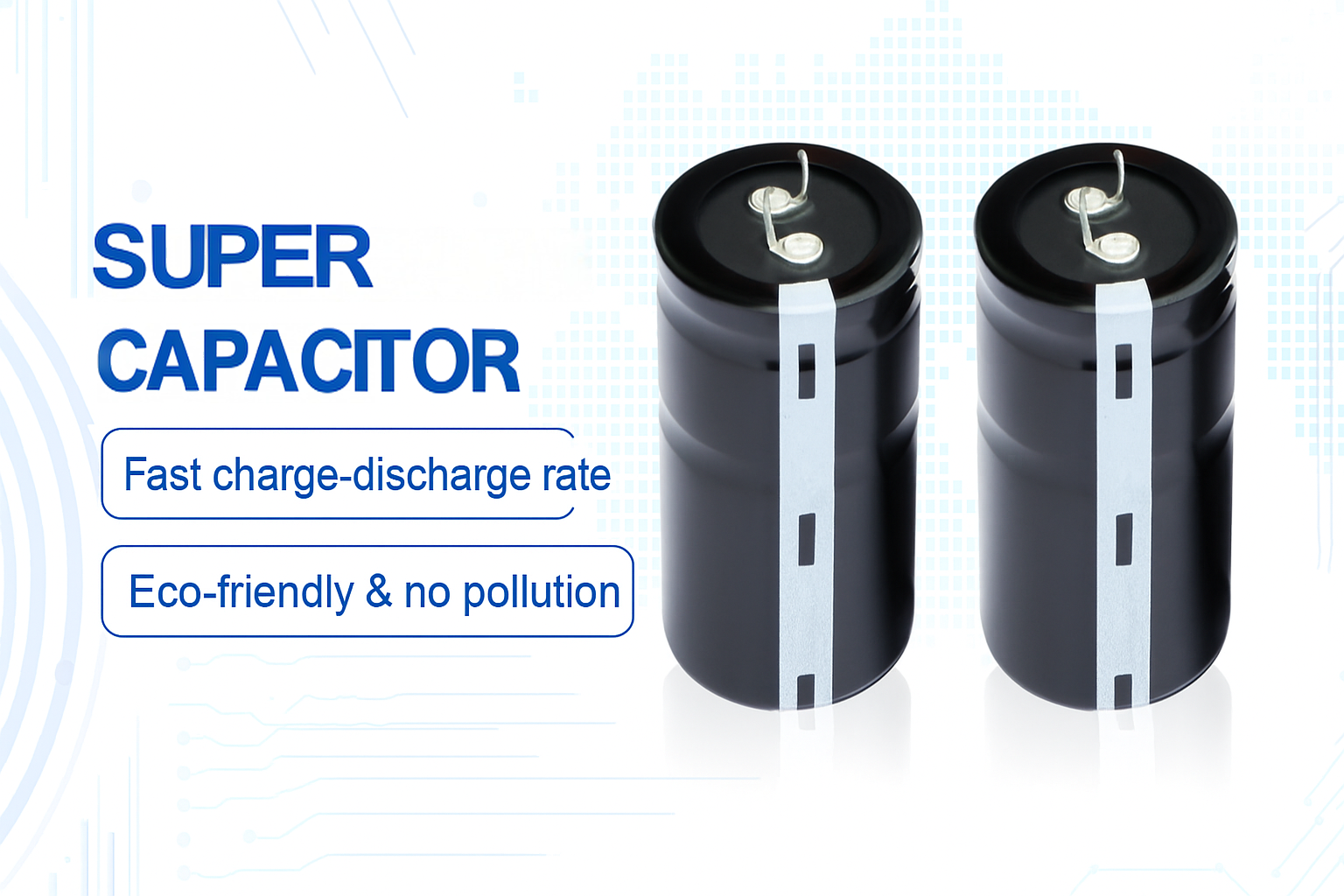Many of you might have seen the “charge for 5 minutes, talk for 2 hours” mobile ad—it was really creative and left a deep impression on me. Back then, mobile charging technology wasn’t as advanced as it is now, and it would take hours to fully charge a device. However, in the world of electronic components, there exists a “5-minute charge, 2-hour performance” component—this is the supercapacitor.
A supercapacitor is a new type of energy storage device that sits between traditional capacitors and batteries, combining the advantages of both. It is small in size, has a large capacity, is environmentally friendly, and boasts the impressive ability to charge and discharge quickly. In fact, a supercapacitor can reach 85% of its rated charge in just seconds to minutes, making it widely used in automotive electronics.

But, can supercapacitors charge so quickly and still be reliable? Will they wear out in a couple of days?
It’s important to understand that fast charging doesn’t equal poor reliability!
Traditional batteries are slow to charge because they rely on chemical reactions to store energy, and these reactions generate resistance, which slows down the energy transfer process. On the other hand, supercapacitors store charge through the formation of an electric double layer or Faradaic pseudocapacitance at the surface of the electrodes. This process does not involve chemical reactions, so there’s no resistance from electrochemical reactions, allowing for fast charging and energy storage.
Despite their quick charging speed, supercapacitors are highly durable. Traditional batteries lose capacity after a few hundred charge cycles because the internal materials degrade over time. In contrast, supercapacitors don’t rely on chemical reactions for energy storage, and each charge cycle causes minimal wear. They can be charged and discharged hundreds of thousands of times, making them much more durable.
Due to their fast charging speed and long lifespan, supercapacitors are used in many electronic products. However, it’s essential to choose high-quality supercapacitors from reputable manufacturers. Low-quality supercapacitors can actually damage electronic devices.
This article is provided by JYH HSU (JEC) Electronics. JEC is a research, development, production, and sales-oriented company specializing in manufacturing and selling various electronic components such as capacitors and resistors.
Post time: Aug-14-2025
